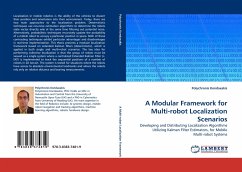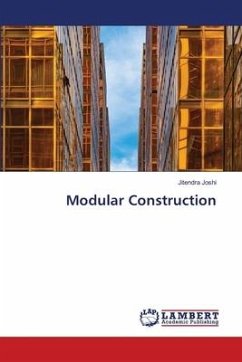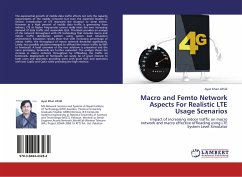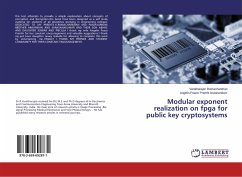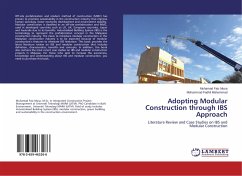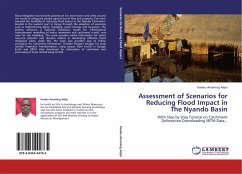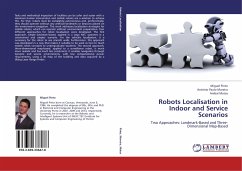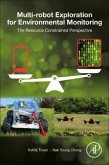Localization in mobile robotics is the ability of the vehicles to discern their position and orientation into their environment. Today, there are two main approaches to the localization problem. Deterministic techniques use recursive estimation algorithms to determine the robots state vector directly wile at the same time filtering out potential noise. Alternatively, probabilistic techniques recursively update the probability of a mobile robot to occupy a particular position in space. Both of these contrasting techniques exhibit particular advantages and disadvantages in real-time implementation. This thesis presents a modular localization framework based on extended Kalman filters (deterministic), which is applied in both single and multi-robot scenarios. The key idea for performing collective localization is that the group of robots must be viewed as a single system where a centralized Extended Kalman Filter (c-EKF) is implemented to track the sequential positions of a number of robots in 2D terrain. The system is tested for situations where the robots have access to absolute environmental landmarks and where the robots rely only on relative distance and bearing measurements.

